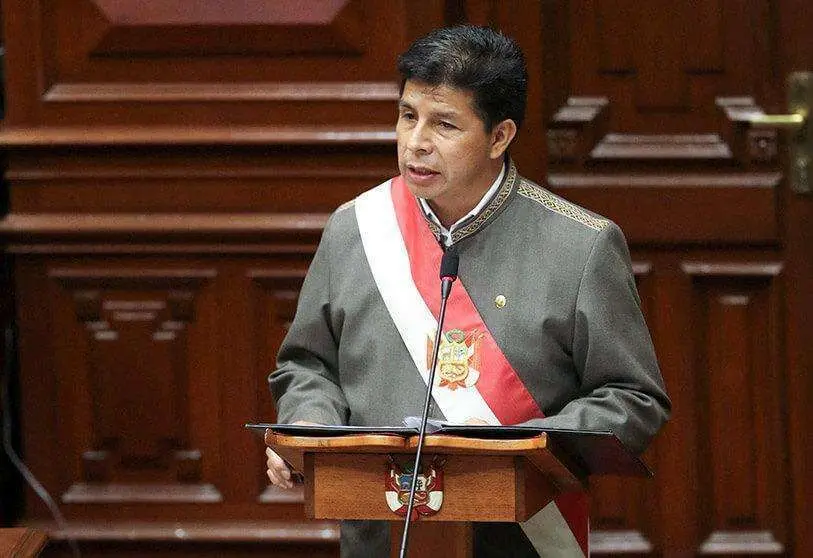The fall of Castillo

With trembling hands, President Castillo addressed the nation last Wednesday to announce the dissolution of Congress, the intervention of the judiciary and the establishment of a Constituent Assembly to draft a new Magna Carta. This coup d'état was the latest and most delirious move by a weak and deranged political leader who has plunged his country into a deep institutional crisis since he came to power.
Castillo, from the very first minute, demonstrated his total incapacity to form a minimally solid cabinet. Government crises followed one after another, with resignations and scandals affecting the members of his team.
Last Wednesday, when he was facing his third motion of censure in barely a year and a half of government, he decreed his political suicide by attempting to overthrow the constitutional state and impose a constituent process to dodge his impeachment process. These are recipes we have seen so many times in Latin America in recent decades. But fortunately this time it was different. Congress did not take it lying down and voted for his removal with force, many of his ministers resigned, his party turned its back on him and, most importantly, the Armed Forces did not follow his lead, which led to the failure of the attempted coup.
Now the Public Prosecutor's Office is charging him under Article 346 of the Peruvian Penal Code with the crime of rebellion for taking up arms "to change the form of government, depose the legally constituted government or suppress or modify the constitutional regime". This qualification is obvious given that, for those who do not know, democracies defend themselves, in America and throughout the world.
And this is undoubtedly magnificent news. It is good news because Peru's institutions have not allowed themselves to be intimidated by a head of state who has betrayed his country by trying to put it in an unacceptable situation, which, if it had succeeded, would not only have put an end to democracy but would have destroyed coexistence in the country.
And it is also good news because it shows that something is changing in the region and this could be a warning to the rest of the populist leaders in this part of the world. López Obrador in Mexico, who is considering offering asylum to the former Peruvian president, is another of the rulers who play at disqualifying his country's political system. An example of this is the electoral reform bill that his administration is currently working on.
However, not all the readings that can be drawn on the resolution of this crisis are positive. Since the fall of Humala in 2016, Peru has had six presidents. The population has suffered an absolute loss of confidence in its political class, and the constitutional configuration seems to inevitably lead to a permanent clash between the executive and the legislature.
To this we must add the mire of corruption, a cancer for democracy that causes deep tears in citizens' confidence in their institutions. Investigations in this regard have surrounded Castillo and his collaborators, but his predecessors have not been left behind. Alejandro Toledo was arrested in the US at the request of his country's prosecutors, Alan García committed suicide in 2019 after being linked to the Odebrecht case, and Ollanta Humala is being investigated for possible illegal campaign financing.
This cocktail of corruption and partisan politics has eaten away at Peruvian democracy, which is obviously in need of a profound reconversion. Dina Boluarte, Castillo's vice-president who assumed power after the president's ouster, has made a good start to her term in office by being unequivocal in her condemnation of the coup. However, her name and track record suggest that she may only be an interim leader whose main mission is to calm the waters and call the people to the polls. It is vital that the people be consulted and new leaderships be built, that the 1993 Constitution be examined to clarify the powers of the executive and the legislature, and above all, that a collective responsibility be taken to fight corruption relentlessly. In short, a new page must be turned in a fascinating country whose strategic conditions have enabled it to experience a phase of economic expansion that allows the Andean country to dream of an exciting future.
